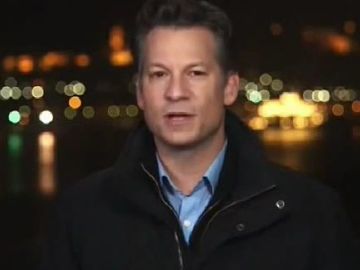Today’s Top Stories
1. The good news from the Yarmouk refugee camp is that ISIS is gone. The bad news? The Al Qaida-affiliated Jahbat al-Nusra (better known as the Nusra Front) controls the camp. Moreover, the Irish Times reports that the Nusra Front colluded with ISIS to weaken a rival Hamas-linked group calling itself Aknaf Beit al-Maqdis.
The degrading of the Hamas offshoot may also have prompted the PLO to deny Yarmouk’s defenders support from Fatah and Democratic Front fighters. PLO envoy to Damascus Ahmed Majdalani initially pledged support for the campaign against Islamic State, but he was contradicted by Ramallah, which claimed the PLO had to remain “neutral”.
For more on Hamas-ISIS tensions (in Gaza) see Al-Monitor.
2. European foreign ministers (16 out of 28) signed a letter urging the European Union to move forward on labeling products made in West Bank settlements. Haaretz obtained a copy.
3. US intelligence sources told the Washington Free Beacon that North Korea sent several shipments of missile components to Iran during the nuclear talks. The report adds that the White House was aware of this all along, but didn’t notify the UN.
Since September more than two shipments of missile parts have been monitored by U.S. intelligence agencies as they transited from North Korea to Iran, said officials familiar with intelligence reports who spoke on condition of anonymity.
Details of the arms shipments were included in President Obama’s daily intelligence briefings and officials suggested information about the transfers was kept secret from the United Nations, which is in charge of monitoring sanctions violations.
4. Does Fighting Anti-Semitism Provide Cover for BDS Activity? Are Jewish students pushing anti-Semitism resolutions on campus unwittingly giving cover to the Boycott, Divestment and Sanctions movement against Israel?
Israel and the Palestinians
• An Israeli man hit by an Arab driver died of injuries overnight in what police suspect was a deliberate terror attack. What’s known is that Khaled Kotina hit 25-year-old Shalom Yohai Sharki and another woman at the French Hill junction in northern Jerusalem. The woman is hospitalized in very serious condition. Investigators haven’t ruled out an accident though. YNet coverage.
• The EU appointed Italian diplomat Fernando Gentilini as its special envoy to the Mideast process. The European Jewish Press reports that his role will be different from that of outgoing Quartet envoy Tony Blair.
• Israel’s Supreme Court rejected an appeal against an anti-boycott law:
While Justice Hanan Meltzer, who wrote the majority opinion, agreed that the law limited free speech, he asserted that the limitation was in this case proportionate as boycotts were, in general, an undesired measure.
• According to Haaretz, Hamas is badly divided on whether to move closer to Saudi Arabia or Iran:
Israeli defense experts think the split could make it difficult for Hamas to maintain long-term ceasefire agreements with Israel. It could also lead to the military wing initiating attacks on the border without coordinating them with Hamas political leaders.
• Hamas accelerates its tunnel-building, using heavy machinery
• 130 New York University professors signed a petition “seeking only divestment from companies that are linked to Israeli operations in Gaza and the West Bank.”

• Hezbollah has lost the support of Palestinian refugees who talked to The Media Line. What does this mean?
“The group is no longer widely considered the axis of resistance, even if they claim to be,” said Atrache.
Those close to the group insist otherwise. Historically framing their movement as a struggle against oppression, Hizbullah’s declining popularity among Palestinians is of symbolic importance. Heba, a journalist for a pro-Hizbullah Lebanese newspaper, says Palestinians who no longer support the movement are compromising the ‘resistance’ against Israeli occupation.
Rest O’ the Roundup
• The Times of Israel takes a closer look at what’s known about the S-300 air defense system Russia will deliver to Iran.
An additional variable — and one that will become an intelligence priority if the sale goes through — is to determine which system Russia has agreed to provide. There are roughly two dozen versions available, equipped with different sorts of radars and different sorts of missiles. “That’s the biggest question of all,” said Yiftach Shapir, a former IAF officer, who heads the INSS think tank’s Middle East Military Balance project. “It determines everything.”
He said Russia was unlikely to reveal, in the event of a sale, which system it had provided and that it was Israeli intelligence that would have to deliver that information to the IAF.
• Iran Is raising sophistication and frequency of cyber attacks, study says

• NBC News revised its account about the five-day abduction of reporter Richard Engel back in 2012. Prompted by new information uncovered by the New York Times, NBC revisited the incident.
According to the Times, the network was aware of possible discrepancies in their original story, which originally blamed the kidnapping on a pro-Assad Shiite group. The shadow of Brian Williams still looms over NBC News.
NBC executives were informed of Mr. Ajouj and Mr. Qassab’s possible involvement during and after Mr. Engels’s captivity, according to current and former NBC employees and others who helped search for Mr. Engel, including political activists and security professionals. Still, the network moved quickly to put Mr. Engel on the air with an account blaming Shiite captors and did not present the other possible version of events.
• Some of the propaganda issues raised in a Congressional hearing (addressing Russian “pseudo-journalism” against the US) may apply to the Israeli-Palestinian conflict too. I like the term, “weaponization of information.”
The real aim, however, was not merely humiliation but to make the point that “Western, and specifically American, promises of security are empty.”
“And once the NATO alliance has been undermined and Americans influences weakened, then the Kremlin will have a stronger hand to play–economically, politically, culturally–in Europe and around the world.” . . .
And in a line that might have inadvertently summed up the thrust of the entire morning-long hearing, he said, “The Kremlin wants a PR war. What it is bad at is media that deals with reality.”
Commentary/Analysis
 • Gary Rosenblatt‘s letter to high school seniors getting ready to move on to college is very worth reading, urging Jewish students to read up on Israel before moving onto campus.
• Gary Rosenblatt‘s letter to high school seniors getting ready to move on to college is very worth reading, urging Jewish students to read up on Israel before moving onto campus.
These days, unfortunately, the government in Jerusalem is a target of widespread criticism, particularly regarding its Zionist ideology and its dealings with the Palestinians. I worry that too many Jewish students are not aware of what they will face and what they will be hearing in the classroom and on campus, from professors and fellow students, about Israel the oppressor, Israel the apartheid state, etc.
The tactics of the BDS advocates often are over-the-top. They are meant to shock and grab attention and they can be disturbing to encounter. You may face “die-ins,” where pro-Palestinian students play dead in protest of civilian deaths during the most recent Gaza war. You may face mock checkpoints, where you will be asked for your ID, echoing the treatment of Palestinians seeking entry into Israel proper. And you may face mock eviction notices where students find notes taped to their dorm room doors in objection to the fact that some Palestinian homes are cleared out to make room for Jewish residents.
Many of you have positive feelings about Israel in your gut, developed over the years from your home life or involvement with a synagogue and/or Jewish education in your early years. Perhaps even a trip to Israel. But you may feel less than confident if called on to explain or defend some of Israel’s controversial policies.
• For more commentary/analysis, see Israeli ambassador to India Daniel Carmon (Nuclear understandings: A prize for bad behavior) and Alex Fishman (Israel saving its anger for White House, not Kremlin).
Featured image: CC BY-NC-SA flickr/Ed Yourdon via flickr with additions by HonestReporting; sweeping CC BY flickr/Bruce Krasting with modifications by HonestReporting; Engel via YouTube/cybernewss24; diploma CC BY flickr/Jeff Meyer;
For more, see yesterday’s Israel Daily News Stream and join the IDNS on Facebook.


